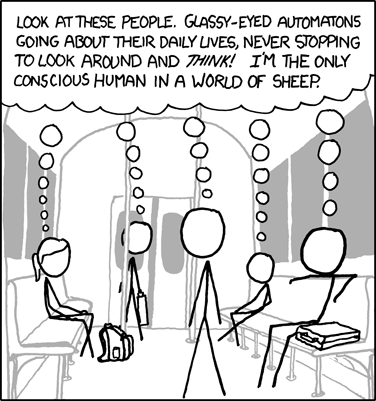As
previously blogged I've been reading
The Omnivore's Dilemma recently, finishing the book on the subway last night. It will take me a while to unpack everything present therein, but right now I'll just say the book finished just as good as it began.
For those that are unfamiliar with the work, the basic narrative arc of the book revolves around Michael Pollan, the book's author, cooking four meals from four different food chains: industrial, industrial organic, pastoral organic and hunter/gatherer. This is not just about the cooking, however, as Pollan investigates the full length of each chain of food from its beginnings all the way to the table - in the case of industrial, from the factory farms and Iowa corn fields to a McDonalds value meal.
I've been feeling a pull toward the
locavoricious for a while now, and let's just say this book has been a large
Jungle-esque push in that direction. Since the Union Square green market is about five minutes from my office I really have no excuse and actually plan to hit that up in the next couple of days (if not today.) It'll also be neat to start eating a bit more seasonally.
Pollan doesn't restrict his musings to the sustainability of eating, however, and at several times through the course of his work he reflects on the state of food in human society in general. Particularly striking to me were the passages in the fourth section about the degradation of the American eating experience because of a lack of a real food tradition. Pollan posits that since America has been an amalgam of various different cultures since its inception it has never had a chance to really create a food culture that it strictly "American", and this has left us open to businesses (fast/processed food companies) and fad diet books (for the love of god, people, carbs are good for you!) to create them for us. This is to our detriment, Pollan writes, because these food mores that other cultures have grown over the course of centuries are part of what keeps them healthy.
Lime, for instance, when sprinkled over beans helps to release more of the beans' natural nutrients which is why so much Mexican food begins with that simple garnish. Additionally, fermented soy (soy sauce) reacts with simple carbohydrates (rice) to maximize the nutritional benefits from both ingredients. Perhaps most striking is the French ability to drink red wine, infuse their food with butter and heavy cream, and still be healthier than Americans - a fact much attributed to the French habits of not snacking and letting meals stretch out for 1-2 hours. Pollan writes:
In the absence of any lasting consensus about what and how and where and when to eat, the omnivore's dilemma has returned to America with an almost atavistic force. This situation suits the food industry just fine, of course. The more anxious we are about eating, the more vulnerable we are to the seductions of the marketer and the expert's advice.
Leading from this he illustrates the (in my mind tragic) degradation of the family dinner:
A vice president of marketing at General Mills once painted for me a picture of the state of the American family dinner, courtesy of video cameras that the company's consulting anthropologists paid families to let them install in the ceiling above the kitchen and dining room tables. Mom, perhaps feeling sentimental about the dinners of her childhood, still prepares a dish and a salad that she usually winds up eating by herself. Meanwhile, the kids, and Dad, too, if he's around, each fix something different for themselves, because Dad's on a low-carb diet, the teenager's become a vegetarian, and the eight-ear-old is on a strict ration of pizza that the shrink says it's best to indulge (lest she develop eating disorders later in life).
As someone who ate dinner with his whole family practically every night, I find this shocking. Even as a 16 year-old with a job that often required me to eat out on my break, I usually was home at least four days a week for a meal in which we all shared. The commonality of a meal is a topic Pollan discusses several times in the book, describing it (accurately in my opinion) as one of the greatest functions of a meal - filling not only the nutritional but also the social needs of the human animal.
Keep an eye out in subsequent posts, but I'm beginning to have an idea for monthly or bi-weekly rotating "family dinners" in which a select group (and only this group, for the sake of not having the group balloon into unmanageable numbers) of family/friends would take turns hosting meals. This wouldn't be a pot luck, per se, as at these you often get overlapping courses (too many proteins, not enough sides, etc) and due to the number of entrees generally often also eat more than recommended - being uncomfortably full is actually bad for your metabolism. This is still (clearly) a rough idea, but it would also give the hosts an opportunity to express themselves through food for a night and, hey, group dinners are always fun.

